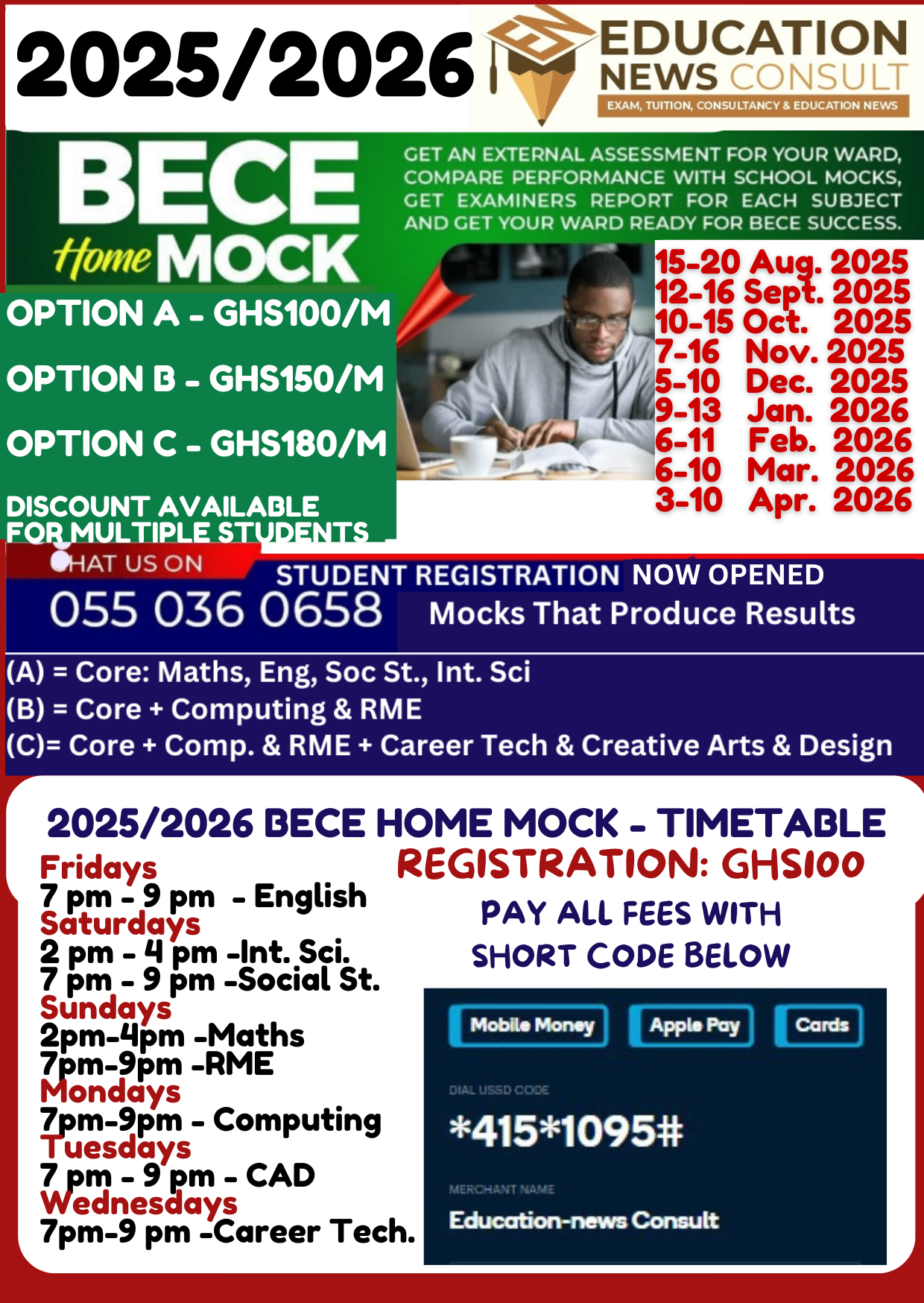English is more than just a subject in the BECE — it’s the language that connects all the others. Whether you’re answering Social Studies essays or solving Mathematics word problems, your English skills can make or break your results. Yet, many candidates overlook it, thinking it’s “just reading and writing.”
If you want to excel, you need more than luck — you need smart strategies. In this post, we’ll break down practical tips for mastering BECE English, using examples from past questions and Ghanaian exam patterns.
Why English Matters in the BECE
English is both a subject and the medium of instruction for all other BECE subjects. This means:
-
Poor grammar can cost you marks in Science or Social Studies.
-
Weak comprehension skills can slow you down in time-pressured sections.
-
A strong vocabulary helps you understand tricky instructions and express yourself clearly.
In short: English mastery equals better performance across all subjects at the BECE.
1. Build a Strong Vocabulary
A rich vocabulary makes reading comprehension easier and boosts your essay writing.
How to do it:
-
Read a variety of materials — newspapers like Junior Graphic, Daily Graphic, short stories, and past BECE passages.
-
Keep a “word bank” notebook. Write new words, their meanings, and sample sentences.
-
Revise your word bank weekly so the new words stick.
💡 Example:
In a past BECE question, the word “reluctant” confused many students. Knowing it means “unwilling” would have made the answer obvious.
2. Master Grammar and Sentence Structure
Grammar mistakes can turn a correct answer into a wrong one.
Strategies:
-
Focus on common BECE-tested areas: subject-verb agreement, tenses, and pronouns.
-
Use free online quizzes or textbooks like the Essential English Grammar for JHS.
-
Practice rewriting incorrect sentences into correct ones.
Quick tip: Always read your essays twice to catch grammar errors before submitting.
3. Sharpen Your Comprehension Skills
Many candidates lose marks here because they rush.
Steps to improve:
-
Read the questions before reading the passage so you know what to look for.
-
Highlight or underline key points as you read.
-
Answer in complete sentences using words from the question unless asked to rephrase.
💡 BECE Example:
If the question asks, “Why did Ama refuse to join the trip?”, don’t just write “She was tired”. Write “Ama refused to join the trip because she was tired.”
4. Practice Summary Writing
Summary questions test your ability to extract key points.
How to excel:
-
Read the passage once for general meaning.
-
On the second read, underline only the important ideas.
-
Avoid examples, illustrations, and repetitions — keep it brief.
5. Prepare for Essay and Letter Writing
This section carries heavy marks.
For narrative essays:
-
Plan your story before writing (beginning, middle, end).
-
Use descriptive language but stay on topic.
- Make it interesting and it must answer the question.
- Often WAEC asks students to write complex narratives. These are essays that give either the starting words, how the story should end or the express the story should explain.
- Master all three types.
For formal and informal letters:
-
Learn the correct formats — these are easy marks if done right.
-
Always stick to the tone: formal for official matters, friendly for personal letters.
💡 Pro tip: Memorise one or two model letters for reference, but never copy word-for-word in the exam.
6. Use Past Questions Strategically
Past questions are not just for testing yourself — they’re for learning patterns.
What to do:
-
Solve them under timed conditions.
-
Check the marking scheme to see how examiners award marks.
-
Identify the topics that repeat often and revise them more.
Common Mistakes to Avoid
-
Leaving questions unanswered — even a guess might earn you partial marks.
-
Writing essays without paragraphs — this makes it harder for the examiner to read.
-
Ignoring instructions like “write not more than 250 words” in summary sections.
- Failing to following the required essay organization when writing
BECE English success doesn’t come from last-minute cramming. It comes from consistent reading, writing, and practice. If you follow these strategies, not only will you perform better in English, but you’ll also find your other subjects easier.
Action Step: This week, try keeping a small vocabulary notebook and practice at least one comprehension passage daily. Your BECE English score will thank you.
